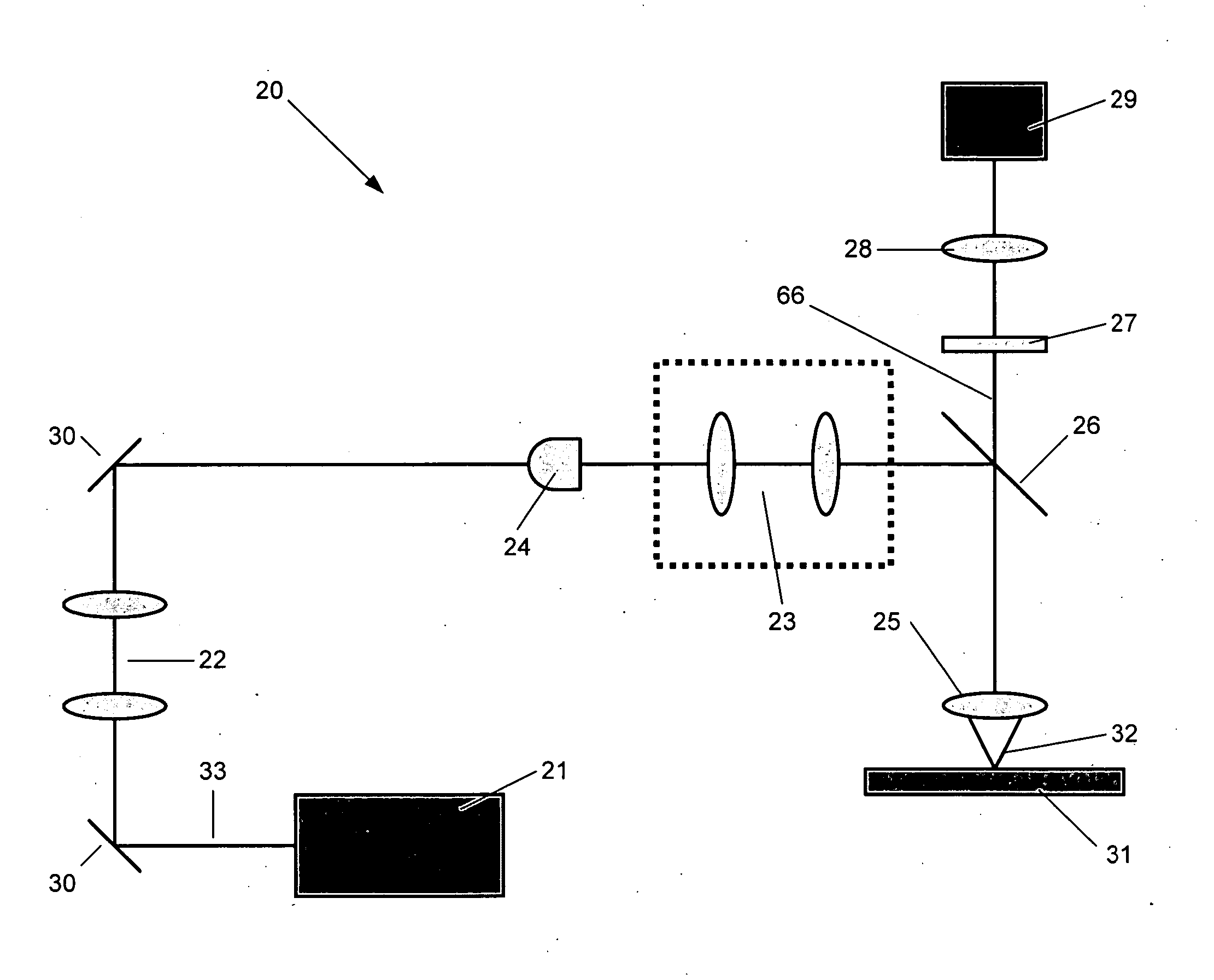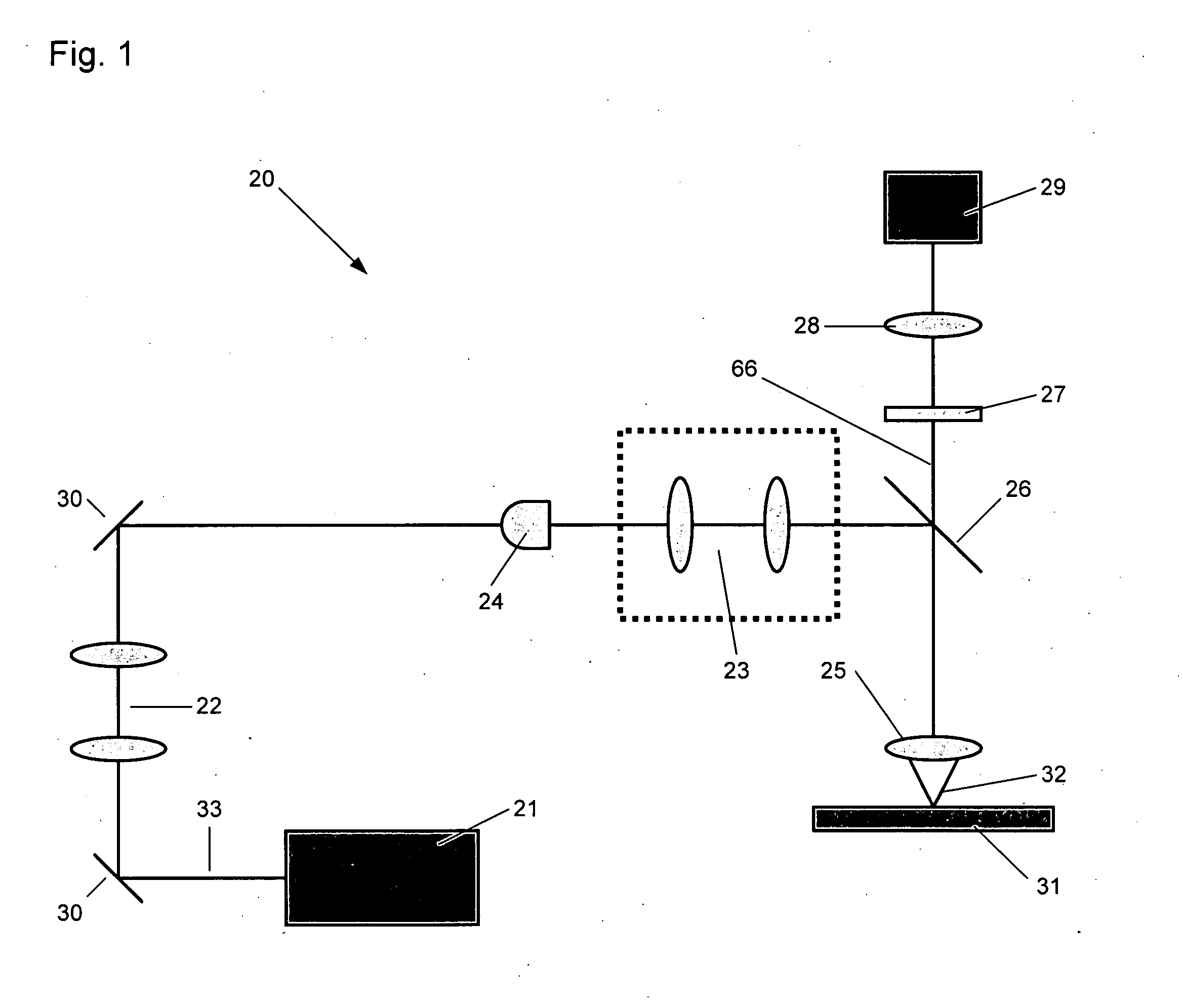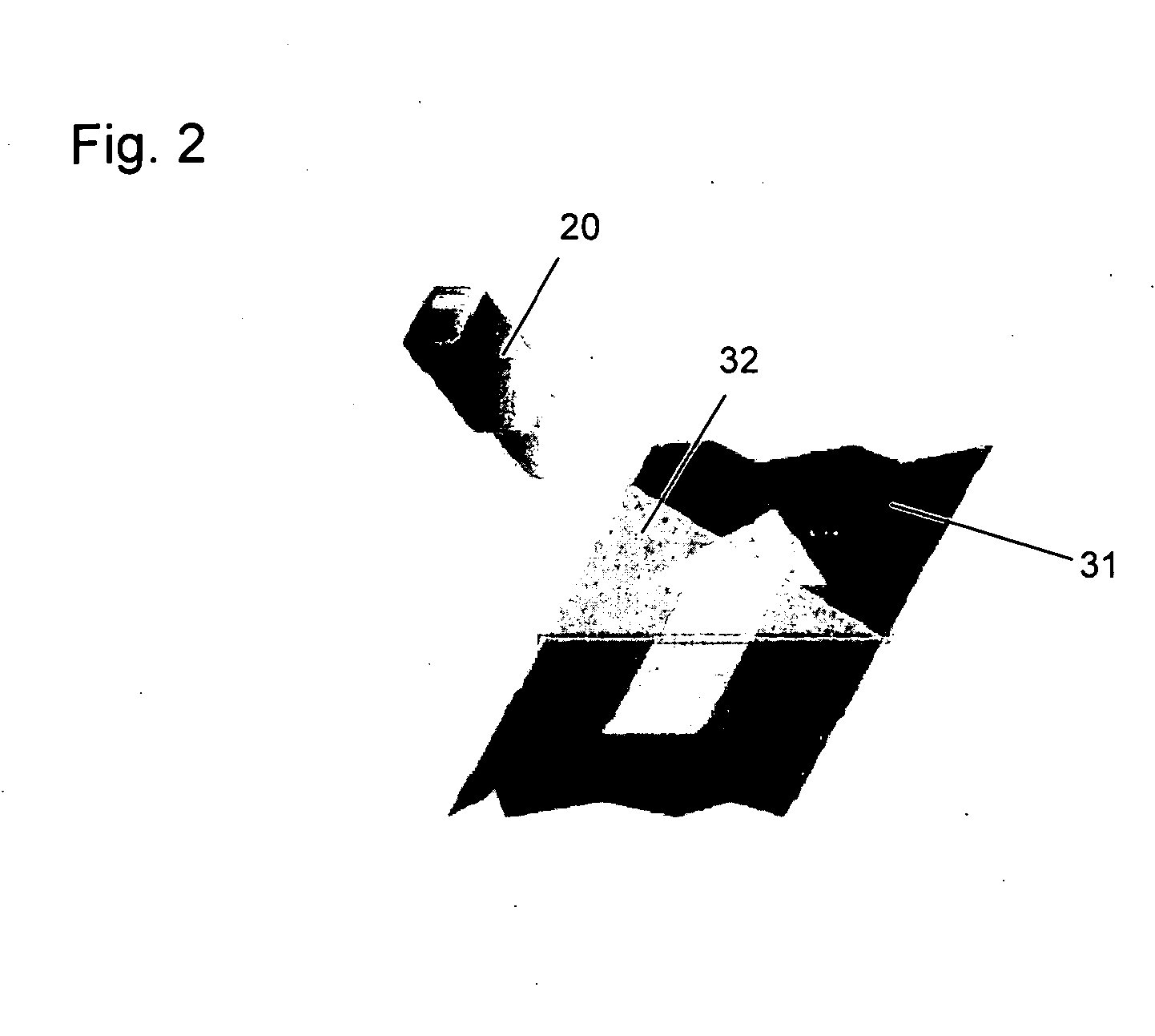Confocal imaging methods and apparatus
a technology of optical imaging and confocal imaging, applied in the field of optical imaging, can solve the problems of insufficient attention to microarray imaging, advances that have not necessarily benefited high resolution scanning of substantially larger samples such as microarrays,
- Summary
- Abstract
- Description
- Claims
- Application Information
AI Technical Summary
Benefits of technology
Problems solved by technology
Method used
Image
Examples
Embodiment Construction
[0023] The present invention provides an image scanning system and architecture having rapid scan times while maintaining high resolution and image quality. These and other advantages result from configuring a detector array to achieve confocality in the scanning axis by restricting the scan-axis dimension of the detector array. As set forth in further detail below, an apparatus of the invention can be configured to achieve confocality in a single axis of a detector array such that confocality only occurs in that dimension. Thus, in contrast to typical confocal systems where confocality is achieved in two dimensions, an apparatus of the invention can be configured such that confocality is not achieved in more than one dimension.
[0024] The detector array can have rectangular dimensions such that the shorter dimension of the detector is in the scan-axis dimension. Imaging optics can be placed to direct a rectangular image of a sample region to the detector array such that the shorter...
PUM
 Login to View More
Login to View More Abstract
Description
Claims
Application Information
 Login to View More
Login to View More - R&D
- Intellectual Property
- Life Sciences
- Materials
- Tech Scout
- Unparalleled Data Quality
- Higher Quality Content
- 60% Fewer Hallucinations
Browse by: Latest US Patents, China's latest patents, Technical Efficacy Thesaurus, Application Domain, Technology Topic, Popular Technical Reports.
© 2025 PatSnap. All rights reserved.Legal|Privacy policy|Modern Slavery Act Transparency Statement|Sitemap|About US| Contact US: help@patsnap.com



